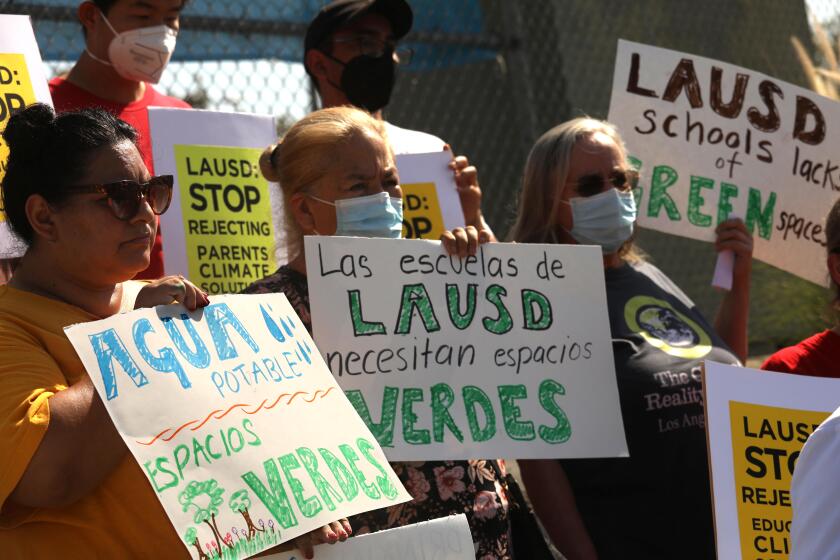Difficult budget choices that impact children’s programs
- Share via
Lawmakers have closed almost half of California’s $26.6-billion budget gap through deep cuts in state programs and services, but some of that progress may be short-lived. A lawsuit by three county agencies challenges the Legislature’s decision to take $1 billion from preschool programs and spend it on healthcare for poor children.
The agencies argue that the transfer violates Proposition 10, the 1998 ballot measure that taxed tobacco products to raise money specifically for early childhood development. They may well prevail — much depends on how the courts read the proposition. But the agencies’ lawsuit is a good illustration of how ballot-box budgeting makes it harder for lawmakers to set priorities and decide how best to meet their constituents’ many needs.
The “First 5” childcare and preschool programs funded by Proposition 10 should be one of the state’s top investments, given how much of a child’s future is determined by his or her first five years. But providing healthcare to those same children is important too. And although First 5 officials disagree, the state Department of Finance contends that about $2 billion in Proposition 10 funds collected by the California Children and Families Commission and corresponding county agencies is sitting idle. That’s one of the main reasons lawmakers agreed to Gov. Jerry Brown’s proposal to shift $1 billion from First 5 programs to a new fund dedicated to healthcare for low-income children no older than 5.
Proposition 10 allows the Legislature to amend it by a two-thirds vote if the changes “further” the act and are “consistent with its purposes.” Officials from Fresno, Madera and Merced counties allege in their lawsuit that garden-variety healthcare services for low-income children don’t pass that test. Legislative leaders argue that the shift is legal and less extensive than Brown had originally sought — his budget called for half of all future Proposition 10 revenues to go straight to healthcare. And there is a precedent for such a shift: The Legislature moved more than $130 million from First 5 programs into early childhood health and disability programs last year.
Californians can disagree over the relative importance of early childhood development and healthcare services for young children, just as they can disagree over the merits of spending cuts and tax increases. But it should be apparent to everyone that the choices facing lawmakers are tough ones, and that they are only made more difficult by ballot measures mandating spending or cordoning off tax revenues for specific purposes, no matter how noble they seem.
Voters have many ways to make their voices heard during budget negotiations, and they can punish lawmakers who don’t share their priorities by voting them out. They should resist the seemingly incessant calls to cement the priorities of the moment into law through ballot-box budgeting.
More to Read
A cure for the common opinion
Get thought-provoking perspectives with our weekly newsletter.
You may occasionally receive promotional content from the Los Angeles Times.









